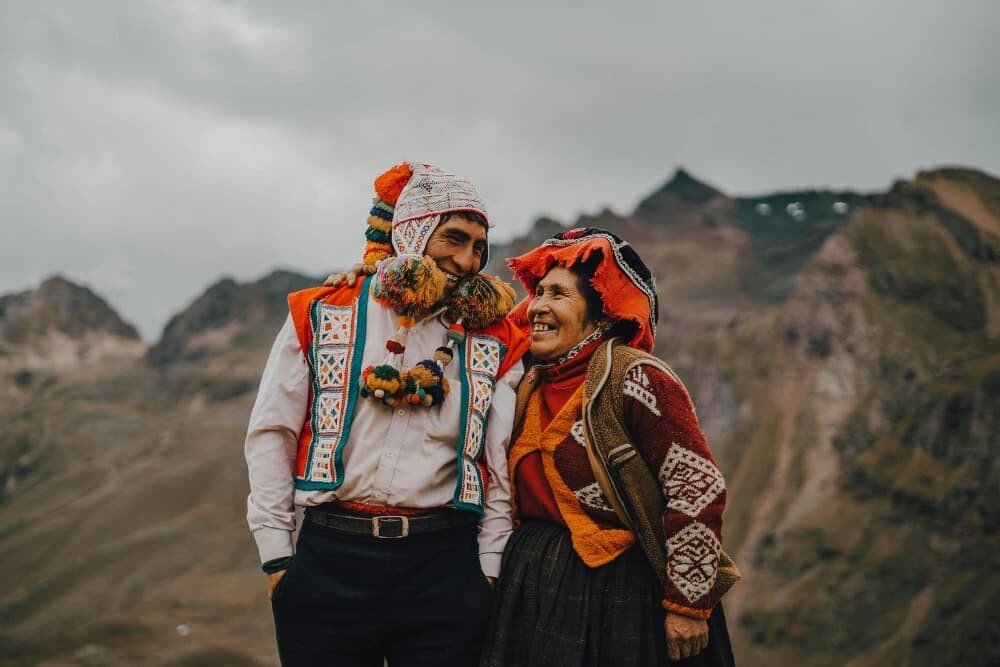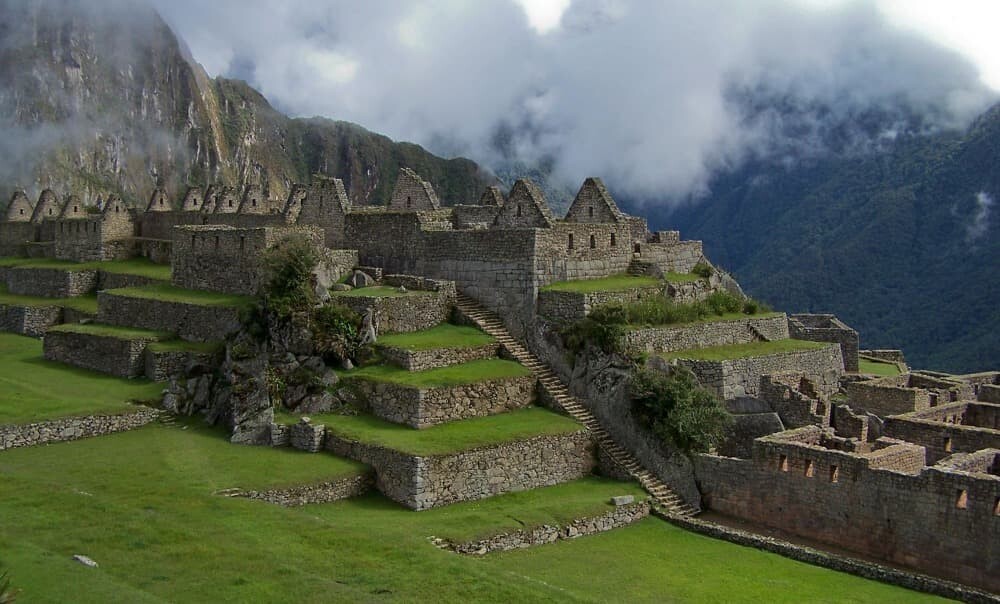Peru is a country located on the western side of South America, with a rich cultural heritage that permeates all aspects of life. In a previous blog post, we shared some legends that surround this fascinating country.
Today, we’ll talk about one of the most iconic tourist destinations in the world, considered one of the ‘New 7 Wonders of the World.’
Of course, we’re talking about Machu Picchu.

We’ll share a bit of the history of this ancient Inca archaeological site so that you can learn more if you choose Peru as your destination to experience volunteer work.
Beyond being an architectural marvel, Machu Picchu is an emblematic example of the Incas’ adaptability to their environment. The choice of location was not random; the Incas selected a strategic site in a region that was difficult to access, surrounded by the Urubamba River and protected by steep mountains. This natural isolation was key to keeping Machu Picchu relatively intact during the Spanish conquest, as it was never discovered by the conquerors.
Situated in the mountainous Andes region and built in the 15th century under the rule of the Inca emperor Pachacutec, Machu Picchu is a testament to the ingenuity and sophistication of the Inca civilization.
The construction of Machu Picchu is a testament to the Incas’ mastery of civil engineering and architecture. The Incas used a construction technique called ashlar, where stones are precisely cut to fit together without the need for mortar. This technique not only gave Machu Picchu remarkable resistance to earthquakes, which are common in the region, but it also demonstrates a deep understanding of structural stability and the manipulation of natural materials. It was built more than 2,400 meters above sea level, on a ridge between the Machu Picchu and Huayna Picchu mountains. The citadel was designed with astonishing precision.
Furthermore, the citadel is filled with complex systems of terraces and water channels that demonstrated the Incas’ skill in managing natural resources. The terraces not only served for agriculture but also helped control erosion and manage rainwater, which was crucial given the steep terrain of the site.

Although the exact purpose of Machu Picchu remains debated, the layout of its structures suggests it served multiple functions. It is divided into two main sectors: the agricultural sector, with its vast terraces, and the urban sector, which includes plazas, temples, residences, and storerooms. Some believe it may have been a retreat for the emperor.
Within the urban sector, some of the most notable buildings include the Temple of the Sun, the Intihuatana, and the Room of the Three Windows. The Intihuatana, a ritual stone believed to have served as a solar clock or astronomical calendar, is particularly interesting as it reflects the Incas’ deep knowledge of solar cycles and their connection to agriculture and spirituality.
The rediscovery of Machu Picchu in 1911 by Hiram Bingham sparked global interest in the Inca civilization, and the site quickly became a symbol of Peru’s cultural heritage. However, this rediscovery also raised questions about preservation and cultural ownership. For years, the objects and artifacts that Bingham took from Machu Picchu were the subject of disputes between Peru and Yale University, eventually leading to their partial return in 2011.
Today, Machu Picchu faces challenges related to conservation due to the impact of mass tourism and natural risks like landslides and erosion. Peruvian authorities have implemented measures to protect the site, including limits on the number of daily visitors and controlled routes within the citadel.
For many Peruvians and the indigenous peoples of the Andes, Machu Picchu remains a sacred place, full of spiritual significance. The citadel is seen as a symbol of the resilience and continuity of Andean traditions, as well as a source of national pride. Additionally, its designation as one of the New Seven Wonders of the World in 2007 has solidified its status as one of the most important tourist destinations on the planet, attracting people from all over the world who seek to connect with the rich history and mystique surrounding this ancient site.
Today, Machu Picchu is also a national symbol of Peru and a UNESCO World Heritage Site, attracting millions of visitors each year.



